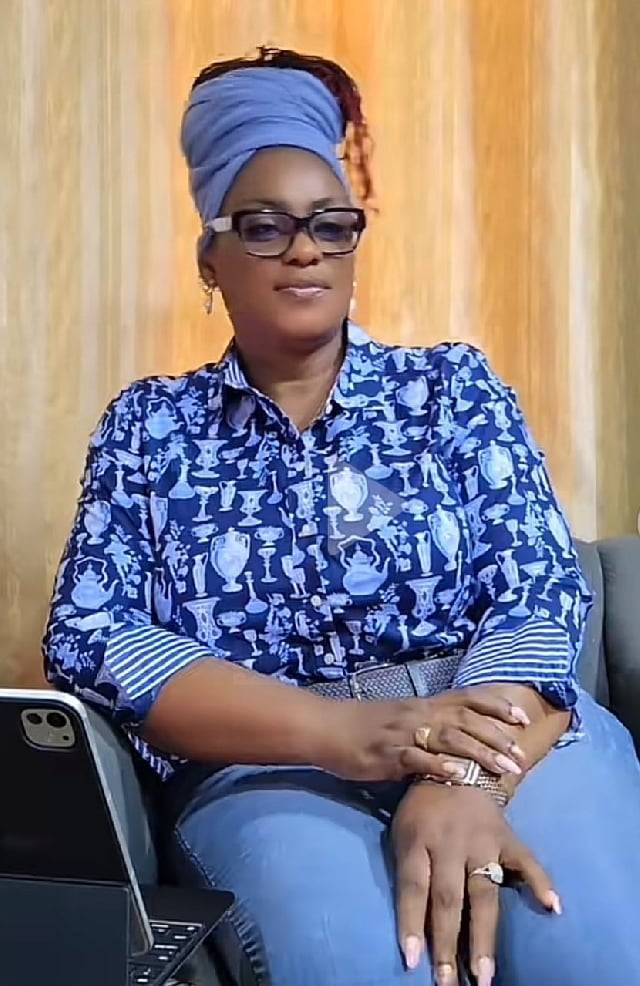This case revolves around a leaked nude video of brand influencer Tina Mensah, sparking a GHC20 million lawsuit against Abigail Kwarteng and former Deputy Minister Nana Ama Dokua Asiamah-Adjei. The incident occurred in February 2025 during Mensah’s visit to Kwarteng’s home in Kumasi. Kwarteng allegedly filmed Mensah exiting a bathroom naked after accusing her of visa fraud. This video was then purportedly shared with Asiamah-Adjei, who is accused of disseminating it widely via WhatsApp, leading to its appearance on social media platforms like TikTok and Facebook. Mensah’s lawsuit alleges defamation and seeks substantial damages, a public apology, and legal recognition of the harm caused by the video’s انتشار.
The core of the legal dispute lies in the alleged violation of Mensah’s privacy and the subsequent damage to her reputation and career. Mensah contends that the video’s release was a malicious act intended to tarnish her public image. The lawsuit details the sequence of events, beginning with Kwarteng’s accusation of visa fraud, which allegedly startled Mensah into exiting the bathroom unclothed. This vulnerable moment was captured on video by Kwarteng, a recording that quickly made its way to Asiamah-Adjei and subsequently went viral. The widespread dissemination of the video has allegedly caused significant professional and personal repercussions for Mensah, including the loss of endorsement deals, the disruption of future business prospects, and even the breakdown of her engagement.
The legal proceedings initiated by Mensah seek to address the alleged wrongdoing and provide redress for the harm suffered. Her claim for GHC20 million in damages reflects the severity of the reputational and emotional distress she claims to have experienced. Beyond financial compensation, Mensah is also seeking an unequivocal public apology from both defendants, a crucial step towards restoring her public image and acknowledging the violation of her privacy. The lawsuit highlights the growing concern over digital abuse and the potential for immense harm through the non-consensual sharing of private materials. The case raises critical questions about online privacy, the responsibility of individuals in the digital age, and the legal recourse available to victims of such violations.
The legal landscape surrounding this case involves multiple layers of complexity. The initial recording of Mensah without her consent raises issues of privacy violation and potential criminal charges against Kwarteng. The subsequent dissemination of the video by Asiamah-Adjei further complicates the matter, introducing questions of defamation and the extent of liability for sharing private material. The lawsuit itself will likely delve into the motivations behind the defendants’ actions, attempting to establish whether the video’s release was a deliberate act of malice intended to harm Mensah. The court will need to consider the balance between freedom of expression and the right to privacy, a delicate balance that is increasingly challenged in the digital era.
The case has already garnered significant public attention and sparked discussions about the potential misuse of technology and the need for stronger legal protections against digital abuse. The involvement of a former Deputy Minister adds a further layer of public scrutiny, highlighting the potential consequences of such actions for individuals in positions of power and influence. The legal proceedings will undoubtedly be closely watched, as the outcome could set a precedent for future cases involving the non-consensual sharing of intimate images and videos. The court’s decision will play a vital role in shaping the legal understanding of privacy rights in the digital age and clarifying the responsibilities of individuals when handling sensitive material online.
The ongoing legal battle between Tina Mensah, Abigail Kwarteng, and Nana Ama Dokua Asiamah-Adjei represents a significant case study in the intersection of privacy, defamation, and digital abuse. The outcome of this lawsuit has the potential to influence future legal interpretations and potentially contribute to the development of more robust legal frameworks addressing online privacy violations. As the legal proceedings unfold, the case will continue to draw attention to the pervasive issue of digital abuse and the importance of safeguarding individual privacy in an increasingly interconnected world. The legal battle also underscores the need for greater public awareness about the potential consequences of sharing private material online and the importance of respecting individual privacy in all forms of communication.


